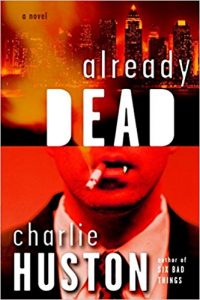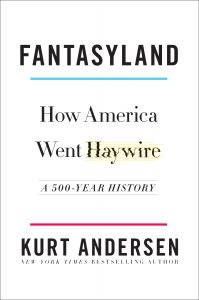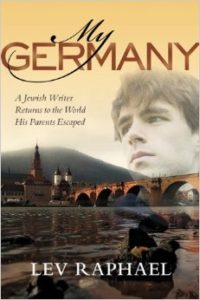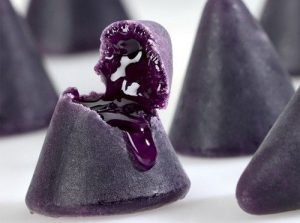Rudi enjoying the evening’s entertainment
People are surprised when I tell them that our older West Highland White Terrier loves watching TV. He even watched almost all of Babe, and when it was done, he looked at us and started moving his lips like the dogs and sheep in the film. True story.
He’s doing more viewing than ever as the summer’s gotten hotter, since he likes staying inside an air-conditioned home and it’s much less taxing than keeping an eye out from the entryway windows for anyone who dares to walk down our street. He enjoys TV in different ways. People running or chasing one another alert and intrigue him. He’ll bark at animals of all kinds or try to chase them across the large screen, though sometimes he’ll just peer at them. If he observes a critter he’s never seen before, like a giraffe or rhino, he always turns around and looks at us as if asking for a name or explanation. Unless he’s just saying, “Dude, did you see that?”
We’ve named certain common animals for him and if you mention them away from the TV in casual conversation (cow, camel, horse, etc.), he’s likely to run into the living room and wait for one to appear, whether the TV is on or not.
He seems to appreciate dramatic emotional confrontations between people that involve close-ups. I’ve watched his eyes dart back and forth, his ears twitch, and he’ll either sit close to the screen and follow every twist and turn, or jump up on an ottoman about six feet away and watch in more comfort. Occasionally he perches on the end of the couch or in a cozy small leather chair. He’s clearly fascinated. What does he make of these moments? I can’t imagine. But the intensity is what seems to hold him riveted.
Booming sound tracks and massive explosions in thrillers bore him, while car chases don’t. If he is bored, he just curls up and falls quickly asleep wherever he is, though sometimes he does that right in front of the main speaker of our home theater system, which seems a quirky choice.
I’d love to be able to talk to him about his favorites types of scenes of just see inside his mind for a little while and experience a movie through his eyes. But watching him is entertaining enough.
We didn’t realize that he was such a TV fan until we noticed that after our dinner and his, we’d find him in the living room staring at the blank screen from one perch or another. If we’re busy, now we put on Netflix’s soothing footage of coral reefs called Ocean Wonders to keep him entertained until we’re ready to tune into something we’ve already DVR’d or a movie we’re renting for the night.
He does not like the news at all, and these days, neither do we.
Lev Raphael is the author of The Vampyre of Gotham and 24 other books in genres from memoir to mystery. He teaches creative writing online at writewithoutborders.com.“Studying creative writing with Lev Raphael was like seeing Blade Runner for the first time: simply incredible.”
—Kyle Roberts, MSU Class of 2016









